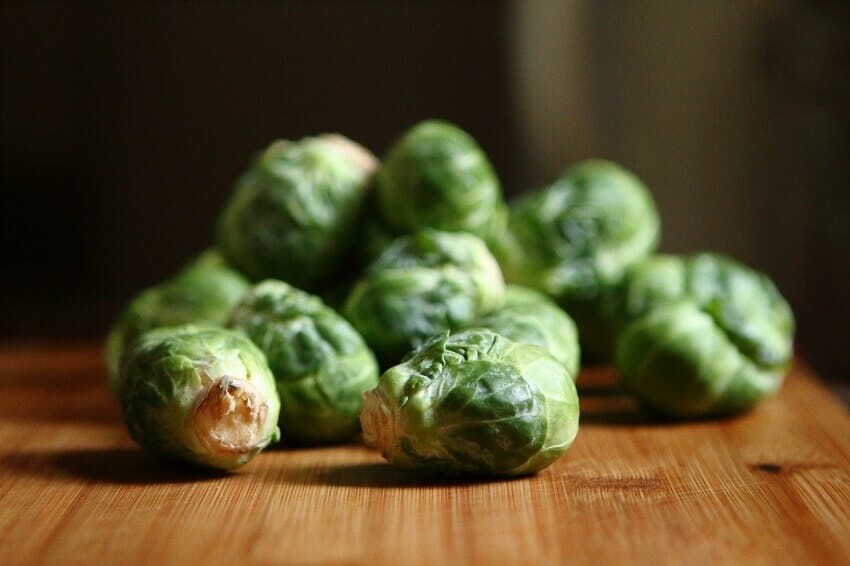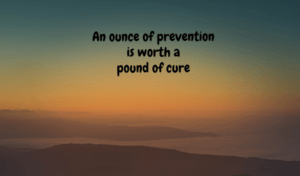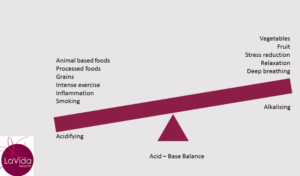When was the last time you gave your liver a moment’s thought?
You are probably aware of your heart when it starts pounding as you run up a hill or run for the train. Maybe it’s climbing a set of stairs. Or you pay attention to your lungs when you observe your breath, practice relaxation or if you suffer from asthma. But I’m guessing you spend most of your days completely oblivious to the critical role your liver plays in your health. And the thing is, we put our livers under enormous pressure (without realising it) when they already have such an important role in our ongoing health and vitality.
Among its functions, your liver plays a vital role in the safe digestion of everything you consume.
Your digestion is responsible for breaking your foods down into glucose, amino acids, essential fats, vitamins and minerals. The complex chemical processes that need to happen to digest your food result in numerous by-products. These then must be made safe for excretion (largely via the bowel and kidneys). This detoxifying activity is one of the main jobs of your liver.
The liver is also responsible for protecting you from any external “toxins” you may take in. These could include household products, pollution, pharmaceutical drugs, alcohol and a diet of highly processed foods. (See Is your environment the cause of your illness for more detail on some of these external toxins).
Furthermore, the liver is involved in the processing and regulation of your hormones, filtering the blood, production of bile to assist in fat digestion and the storage of certain vitamins, minerals and nutrients.
The liver is a very busy organ so as you can imagine a healthy working liver is extremely important to the maintenance of your good health. (It’s also a very forgiving organ but that’s no excuse for not showing it some love from time to time, right?)
Your liver is a vital but often unappreciated organ.
Are you taking care of it?
Signs and symptoms of a liver under pressure
The clues to recognising a liver under pressure are numerous. It can sometimes be difficult to distinguish them as problems of liver function as opposed to some other health condition.
A liver struggling to cope with the demands of your lifestyle and diet may produce signs and symptoms such as:
- constipation, flatulence, bloating or nausea
- bad breath
- migraines or headaches
- dark circles under the eyes or a yellow coating on the tongue
- fatigue
- loss of appetite
- skin problems
- immunity issues (including auto-immune conditions)
- arthritis or general aches and pains
- difficulty digesting fatty or rich foods
- food intolerances or sensitivities
- sleep issues (especially waking at around 3am)
A liver under excess pressure may also result in hormone imbalances which can then lead to further symptoms. These include poor libido, PMS, menstrual irregularities and thyroid problems.
Even anger can be a sign of an unhappy liver (ever heard the expression…” he is a bit liverish”?).
A liver that is struggling to perform its duties because of inadequate nutrients or simply because it can’t cope with the workload, must prioritise its duties. In this case, the removal of some toxins from the body gets pushed down the list. Those toxins will circulate in the bloodstream or be stored in the body, until such time as the liver has the capacity to deal with them. (Often these toxins are stored in fat cells and consequently, difficulty losing weight can be exacerbated by poor liver function. The body needs that fat to safeguard you from toxins).
When was the last time you gave your liver a second thought. If you suffer from any of the above isses, perhaps it’s time you did.
A healthy and optimally functioning liver is crucial for your health and vitality so it makes sense to ensure it is working efficiently to cope with the daily demands placed on it.
How do I assess the health of your liver?
The first step is to take a thorough history of your health, symptoms, diet and lifestyle.
Your doctor may have requested that you have liver function tests (LFTs) in the past. This is a blood test that looks at levels of liver enzymes, bilirubin and albumin. The results of this test can be an indicator of liver damage and are therefore useful in determining or ruling out liver disease. It’s a useful test but it doesn’t tell us a great deal about how well the liver is actually working in its role of detoxification. (i.e. the liver is not diseased as such, but it’s just not working all that well).
A test I sometimes make use of is the Functional Liver Detoxification Profile (“FLDP”). This simple urine test assesses the effective operation of five of the key detoxification pathways in the liver.
It can tell us how well these pathways are working. When used in conjunction with a naturopathic assessment of your health, we can provide very targeted treatment to more quickly improve liver function.
There are other tests that can give us information about how hard your liver is working. These include testing for toxins or heavy metals, hormone levels or digestive function.
These tests are not essential (and I don’t always request them) but they can be helpful in providing more information about what might be causing your symptoms if it is difficult to pinpoint possible causes in your history.
What can you do to take care of your liver?
Firstly, stop overloading it with work by reducing the quantity of processed foods, alcohol, caffeine and chemicals it is exposed to.
Secondly, in order to perform its functions efficiently, the liver requires good levels of protein. Protein provides the essential amino acids required for the numerous detoxification actions that the liver undertakes. So I recommend including protein with each meal.
Thirdly consume lots of fruit and vegetables which are valuable sources of the antioxidants, vitamins and minerals required for effective liver function. A diet rich in vegetables from the brassica family (e.g. Brussels sprouts, broccoli, cabbage, cauliflower) is supportive of liver function and adequate fibre and water will help with elimination. Many nutrients are required for good liver function. These include vitamins such as B2, B3, B6, B12 and vitamin C. You also need adequate intake of folate, selenium, molybdenum, manganese, zinc and copper. So basically aiming for a diet that is rich in plant food with lots of colour and variation is a great starting point.

Brussels sprouts are great for the liver
Are you a boozy boomer?…a word on alcohol
An article in the Medical Journal of Australia (online, Jan 2019) highlighted some interesting facts about alcohol consumption.
Whilst alcohol consumption in younger people is on the decline, the proportion of those over 55 years of age whose consumption falls into the risky or high-risk categories is on the increase. What is risky? Five or more standard drinks on a single occasion at least once a month is considered risky. And remember, most bottles of wine contain approximately 8 standard drinks.
It’s interesting to contemplate why (as reported in the article) alcohol consumption doesn’t seem to be declining as we get older (unlike in earlier generations). Is it because, as a society, we are working harder for longer and have more stress in our lives? Is it because we eat out of the home more often than our ancestors?
If you haven’t done so before, ask yourself why you are having that drink. And do this for every drink you have! Is it peer group pressure? Is it a habit? Do you actually enjoy that second or subsequent drink as much as the first? If it is to help you unwind or switch off, do you need more than one? Is there something else you could do that would achieve the same effect? What is causing you to need to unwind in the first place?
I see many clients who find it necessary to start their day with caffeine and end it with alcohol. This is not an ideal way to live if you want to have a long and healthy life. It suggests there is something else going on which needs to be addressed. An occasional drink is one thing but regular consumption is not healthy.
Not only does alcohol contribute calories without nutrients but it also increases your risk of weight gain, high blood pressure, liver disease, some cancers, dementia and more. And it is a great disruptor of good quality sleep.
So make a considered decision before you have each and every drink as to whether the “benefits” outweigh the risks. And if you do enjoy a drink occasionally, make even more of a concerted effort to look after yourself in other aspects of your diet and lifestyle.
What else can you do to improve your health?
If you are concerned about the health of your liver, it is well worth investing in a thorough naturopathic assessment to ensure you are on the right track. If you are interested in herbal support, herbs that can help include Curcuma longa, Silybum marianum (St Marys Thistle), Cynara scolymus, Bupleurum falcatum and Schizandra chinensis to name a few. (Please note: herbs should not be self-prescribed. They can interfere with your medications and may be contraindicated in some circumstances).
Typically, I will develop a tonic for you using these or other herbs depending on your unique symptoms, pathology results, diet and lifestyle. I will also provide you with dietary guidance to make sure you are getting sufficient nutrients or provide additional nutrients to supplement your diet if necessary. Alternatively, my 21 day detox program may be perfect for you.





2 thoughts on “How to love your liver (and why you should)”
informative article.
Thank you!